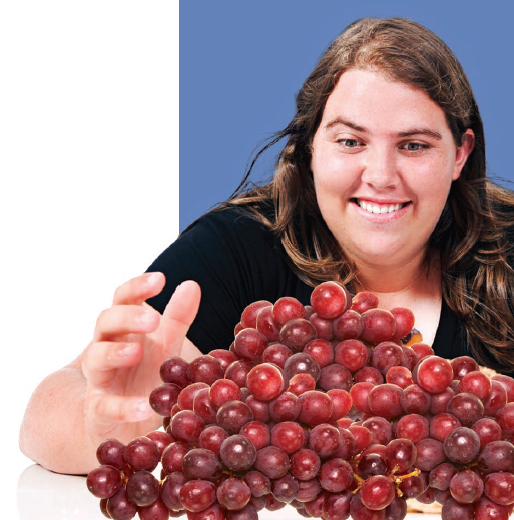 To seek happiness outside ourselves is like trying to lasso a cloud. Happiness is not a thing: It is a state of mind. It must be lived. Neither worldly power nor moneymaking schemes can ever capture happiness. Mental restlessness results from an outward focus of awareness. Restlessness itself guarantees that happiness will remain elusive. Temporal power and money are not states of mind. Once obtained, they only dilute a person’s happiness. Certainly they cannot enhance it.
To seek happiness outside ourselves is like trying to lasso a cloud. Happiness is not a thing: It is a state of mind. It must be lived. Neither worldly power nor moneymaking schemes can ever capture happiness. Mental restlessness results from an outward focus of awareness. Restlessness itself guarantees that happiness will remain elusive. Temporal power and money are not states of mind. Once obtained, they only dilute a person’s happiness. Certainly they cannot enhance it.
The more widely we scatter our energies, the less power we have left to direct toward any specific undertaking. Octopus habits of worry and nervousness rise from ocean depths in the subconscious, fling tentacles around our minds, and crush to death all that we once knew of inner peace.
True happiness is never to be found outside the Self. Those who seek it there are as if chasing rainbows among the clouds!
Like the short-lived roses, countless human beings appear daily in earth’s garden. In their youth, they open fresh, hopeful buds, welcoming life’s promises and nodding with eager expectancy to every breeze of sense-enjoyment. And then—the petals begin to fade; expectancy turns to disappointment. In the twilight of old age they droop, gray in disillusionment.
Mark the rose’s example: Such is the destiny of human beings who live centered in the senses.
Analyze, with understanding born of introspection, the true nature of sense-pleasures. For even as you delight in them, don’t you sense in your heart a chilling breath of doubt and uncertainty? You cling to them, yet know in your heart that someday they cannot but betray you.
Closer scrutiny reveals that sense-indulgence actually mocks its votaries. What it offers is not freedom, but soul-bondage. The way of escape lies not, as most people imagine, down moss-soft lanes of further indulgence, but up hard, rocky paths of self-control.
People forget that the price of luxury is an ever-increasing expenditure of nerve and brain energy, and the consequent shortening of their natural life span.
Materialists become so engrossed in the task of making money that they can’t relax enough to enjoy their comforts even after they’ve acquired them.
How unsatisfactory is modern life! Just look at the people around you. Ask yourself, are they happy? See the sad expressions on so many faces. Observe the emptiness in their eyes.
“To seek happiness outside ourselves is like trying to lasso a cloud. Happiness is not a thing: It is a state of mind.”
A materialistic life tempts mankind with smiles and assurances, but is consistent only in this: It never fails, eventually, to break all its promises!
As a man allows himself to depend increasingly on circumstances outside himself for his physical, mental, and spiritual nourishment, never looking within to his own source, he gradually depletes his reserves of energy.
Possession of material riches, without inner peace, is like dying of thirst while bathing in a lake. If material poverty is to be avoided, spiritual poverty is to be abhorred! It is spiritual poverty, not material lack, which lies at the core of all human suffering.
The material scientist uses the forces of nature to make the environment of man better and more comfortable. The spiritual scientist uses mind-power to enlighten the soul.
Mind-power shows man the way to inner happiness, which gives him immunity to outer inconveniences.
Of the two types of scientist, which would you say renders the greater service? The spiritual scientist, surely.
Pure love, sacred joy, poetic imagination, kindness, wisdom, peace, and happiness are felt inside first in the mind or the heart, and are then transmitted through the nervous system to the physical body. Understand and feel the superior joys of the inner life, and you will prefer them to the fleeting pleasures of the outer world.
All physical pleasures arise on the surface of the body and are experienced by the mind through the nervous system. You love the outer pleasures of the senses because you happened to be captured by them first, and then you remained their prisoner. Even as some people get used to jail, so we mortals like the outward pleasures, which shut off the joys from within.
For the most part, the senses promise us a little temporary happiness, but give us sorrow in the end. Virtue and inner happiness do not promise much, but in the end always give lasting happiness. That is why I call the lasting, inner happiness of the soul, “Joy” and the impermanent sense thrills, “Pleasure.”
 “One of life’s unwritten laws is that he who helps others to abundance and happiness will always be helped in return, and he will become more and more prosperous and happy.”
“One of life’s unwritten laws is that he who helps others to abundance and happiness will always be helped in return, and he will become more and more prosperous and happy.”
Outer environment and the company you keep are of paramount importance. The specific outer environment of early life is especially important in stimulating or stifling the inner instinctive environment of a child. A child is usually born with a prenatal mental environment. This is stimulated if the outer environment is like the inner environment, but if the outer environment is different from it, the inner environment is likely to be suppressed. An instinctively bad child may be suppressed and made good in good company, and vice versa, while an instinctively good child placed in good company will, no doubt, increase his goodness.
Have you thought seriously why you love fleeting, deceiving pleasures in preference to the lasting peace and joy of the Soul—found so distinctly and ever-increasingly in meditation? It is because in the beginning you happened to cultivate the habit of indulging in sense pleasures and did not cultivate the superior joy of the inner life found in meditation. Understand and feel the superior joys of the inner life, and you will prefer them to the fleeting pleasures of the outer world.
A man who lived in the cold tracts of Alaska had tasted some of the luscious, lady-finger grapes that had been shipped to him by a friend who lived in Fresno, California. The Alaskan was so enamored of the grapes that he secured a job in Fresno, where all kinds of grapes grow abundantly, and left Alaska for good.
The Alaskan, on his arrival in Fresno, was invited to the house of a friend, and a young lady brought him a bunch of the grapes he so loved. He was almost beside himself with joy, and as he hurriedly munched and gulped down the grapes, he gurgled out: “Oh thank you, from the bottom of my heart, thank you. I left Alaska for lady-finger grapes.”
“Well, sir, you shall have all the grapes you want. I am the owner of a grape ranch, and daily I will bring you plenty of grapes,” said the lady.
The next day, very early, the lady arrived at the house of the grape-gorged Alaskan with a large quantity of grapes. The Alaskan, who had not yet digested all the grapes he had swallowed the previous night, came out of the house yawning. He leaped with joy at the prospect of feasting on the large amount of grapes the lady had brought.
“Oh, how wonderful to have so many grapes! I am very lucky. Thank you, thank you,” cried the Alaskan. He tasted a few grapes in the presence of the lady as a matter of politeness, although he could taste the undigested grapes of the previous night in his mouth. When the lady left, he gloated over the grapes with admiration and greedy eyes. An hour elapsed, then he began eating grapes again. All day long he swallowed grapes, grapes, grapes.
Next morning, at the break of dawn, the young lady arrived with a larger quantity of the finest grapes from her vineyard and shouted for the Alaskan. Half sleepy, with a slightly wilted enthusiasm and a touch of vexation at being roused from a deep sleep, but wearing a gentle smile on his face, the Alaskan greeted the grapes and the lady: “Hello, good lady, thank you for the very nice grapes.”

“No matter how pleasurable a thing is, if you over-indulge in it, it ceases to give pleasure and gives pain instead.”
On the third morning, as usual, the lady brought a large bunch of grapes. The Alaskan, half asleep, and with a half smile on his face, greeted the lady and said: “Lady, it is very good of you to give me these grapes, but I still have some left from yesterday.”
On the fourth morning, the lady called on the Alaskan again with a good quantity of grapes. He reluctantly woke up, and without a smile greeted the lady and said: “Oh, grapes again. It is very nice of you to bring them, but I have enough.”
But the lady, disbelieving the story of the Alaskan and thinking he was just afraid to impose upon her generosity, brought the biggest quantity of grapes on the fifth morning and knocked at the residence of the Alaskan. He leaped out of bed as if he’d seen a ghost and shouted at the lady: “Horrors, lady, grapes, grapes, grapes! For Heaven’s sake, grapes again!” The lady smiled and said: “I am happy to know that you hate grapes. I hope you will never deprive me of my salable grapes again.”
The above story shows that too much of anything is bad. No matter how pleasurable a thing is, if you over-indulge in it, it ceases to give pleasure and gives pain instead.
So, remember, do not over-indulge in eating, sleeping, working, social activity, or in any activity, no matter how pleasurable it is, for an over-indulgence will yield nothing but unhappiness.
It is important to differentiate between your needs and your wants. Your needs are few, while your wants can be limitless. In order to find freedom and bliss, minister only to your needs. Stop creating limitless wants and pursuing the will-o’the-wisp of false happiness. The more you depend upon conditions outside yourself for happiness, the less happiness you will experience.
Fostering the desire for luxuries is the surest way to increase misery. Do not be the slave of things or possessions. Boil down even your needs. Spend your time in search of lasting happiness or bliss. The unchangeable, immortal soul is hidden behind the screen of your consciousness, on which are painted dark pictures of disease, failure, death, and so forth. Lift the veil of illusive change and be established in your immortal nature. Enthrone your fickle consciousness on the changelessness and calmness within you, which is the throne of God. Let your soul manifest bliss night and day.

Happiness can be secured by the exercise of self-control, by cultivating habits of plain living and high thinking, and by spending less money, even though earning more. Make an effort to earn more so that you can be the means of helping others to help themselves. One of life’s unwritten laws is that he who helps others to abundance and happiness will always be helped in return, and he will become more and more prosperous and happy. This is a law of happiness which cannot be broken. Is it not better to live simply and frugally and grow rich in reality?
“Life should be a constant inspiration. To live mechanically is to be dead inside though your body be still breathing!”
The soul cannot find its lost happiness in material things for the simple reason that the comfort they offer is counterfeit. Having lost contact with divine bliss within, man hopes to satisfy his need for it in the pseudo-pleasures of the senses. On deeper levels of his being, however, he remains aware of his former, supernal state in God. True satisfaction eludes him, for what he seeks, while rushing restlessly from one sense pleasure to another, is his lost happiness in the Lord.

Ah, blindness! How long must you continue before, suffering from satiety, boredom, and disgust, you seek joy within, where alone it can be found?
“Understand and feel the superior joys of the inner life, and you will prefer them to the fleeting pleasures of the outer world.”
Think for a moment what Jesus meant when he said, “Let the dead bury their dead.” (Matthew 8:22) His meaning was that most people are dead but don’t know it! They have no ambition, no initiative, no spiritual enthusiasm, no joy in life.
What is the use of living that way? Life should be a constant inspiration. To live mechanically is to be dead inside though your body be still breathing!
The reason people’s lives are so dull and uninteresting is that they depend on shallow channels for their happiness, instead of going to the limitless source of all joy within themselves.
What is the use of spending all one’s time on things that don’t last? The drama of life has for its moral the fact that it is merely that: a drama, an illusion.
Fools, imagining the play to be real and lasting, weep through the sad parts, grieve that the happy parts cannot endure, and sorrow that the play must, at last, come to an end. Suffering is the punishment for their spiritual blindness.
The wise, however, seeing the drama for the utter delusion it is, seek eternal happiness in the Self within.
 Born in India in 1893, Paramhansa Yogananda was trained from his early years to bring India’s ancient science of Self-realization to the West. In 1920, he moved to the United States to begin what was to develop into a worldwide work touching millions of lives. Americans were hungry for India’s spiritual teachings, and for the liberating techniques of yoga. In 1946, he published what has become a spiritual classic and one of the best-loved books of the 20th century, Autobiography of a Yogi. In addition, Yogananda established headquarters for a worldwide work, wrote a number of books and study courses, gave lectures to thousands in most major cities across the United States, wrote music and poetry, and trained disciples. Yogananda’s message to the West highlighted the unity of all religions, and the importance of love for God combined with scientific techniques of meditation. www.crystalclarity.com
Born in India in 1893, Paramhansa Yogananda was trained from his early years to bring India’s ancient science of Self-realization to the West. In 1920, he moved to the United States to begin what was to develop into a worldwide work touching millions of lives. Americans were hungry for India’s spiritual teachings, and for the liberating techniques of yoga. In 1946, he published what has become a spiritual classic and one of the best-loved books of the 20th century, Autobiography of a Yogi. In addition, Yogananda established headquarters for a worldwide work, wrote a number of books and study courses, gave lectures to thousands in most major cities across the United States, wrote music and poetry, and trained disciples. Yogananda’s message to the West highlighted the unity of all religions, and the importance of love for God combined with scientific techniques of meditation. www.crystalclarity.com






